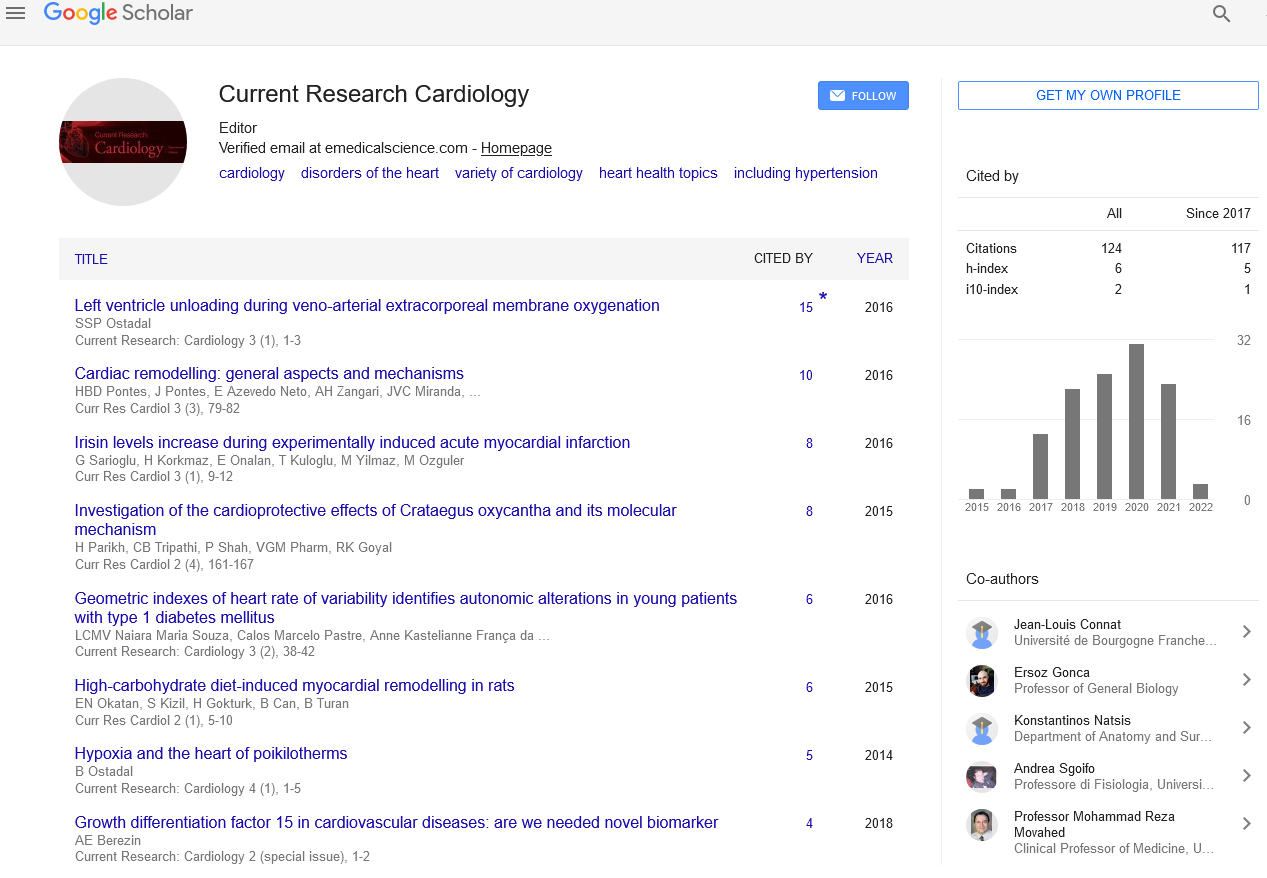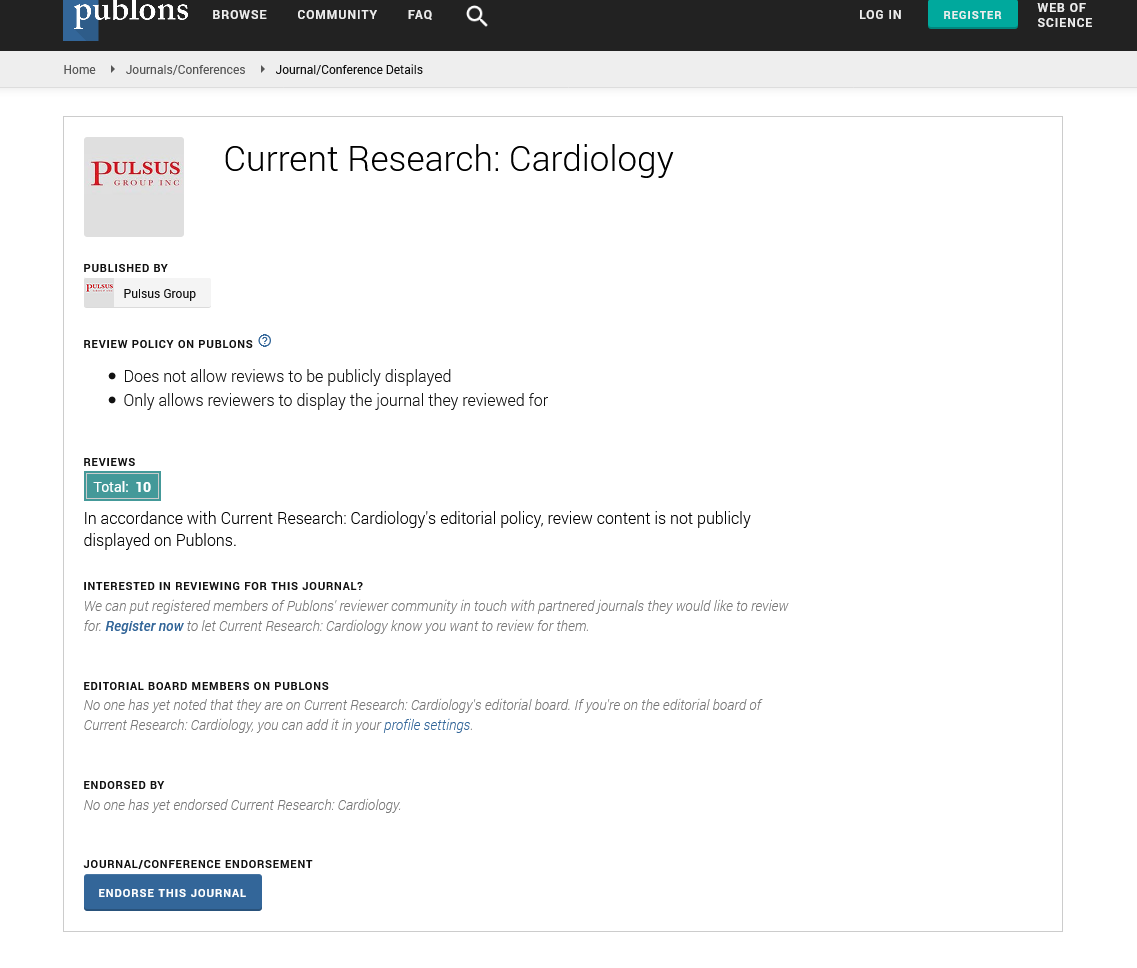
Sign up for email alert when new content gets added: Sign up
Abstract
Cardiac remodelling: General aspects and mechanisms
Author(s): Henrique Budib Dorsa Pontes*, Jose Carlos Dorsa Vieira Pontes, Euler de Azevedo Neto, Alexandre Henrique Zangari, Joao Victor Cunha Miranda and Otoni Moreira GomesThe progression of heart failure is related to cardiac remodelling, which represents the sequence of events at the molecular, cellular and interstitial levels, leading to changes in the size, mass, geometry and function of the heart. Cardiac remodelling involves both adaptive and maladaptive phases of development. At the initial stage, it represents an adaptive response to maintain cardiac output, whereas in the late stage, it results in the occurrence of heart failure. Oxidative stress appears to be the main factor that induces transition of cardiac hypertrophy to heart failure as a consequence of alterations in signal transduction, dysfunction of the sarcolemma and sarcoplasmic reticulum, impairment of calcium handling, increases in cardiac fibrosis and progressive loss of cardiomyocytes. Elements that play a fundamental role at the initial stages of cardiac remodelling and are associated with cardiac hypertrophy include neurohormonal activation, represented by the elevation of angiotensin II and norepinephrine levels. On the other hand, prolonged neurohormonal activation, as well as inflammatory signalling due to increased levels of tumour necrosis factor-α and transforming growth factor-β, may be involved in the late stages of cardiac remodelling associated with heart failure. In its initial stages, cardiac remodelling appears to serve as an adaptive mechanism, whereas in its late stages this process is associated with molecular and cellular defects leading to the development of heart failure.
Full-Text | PDF





